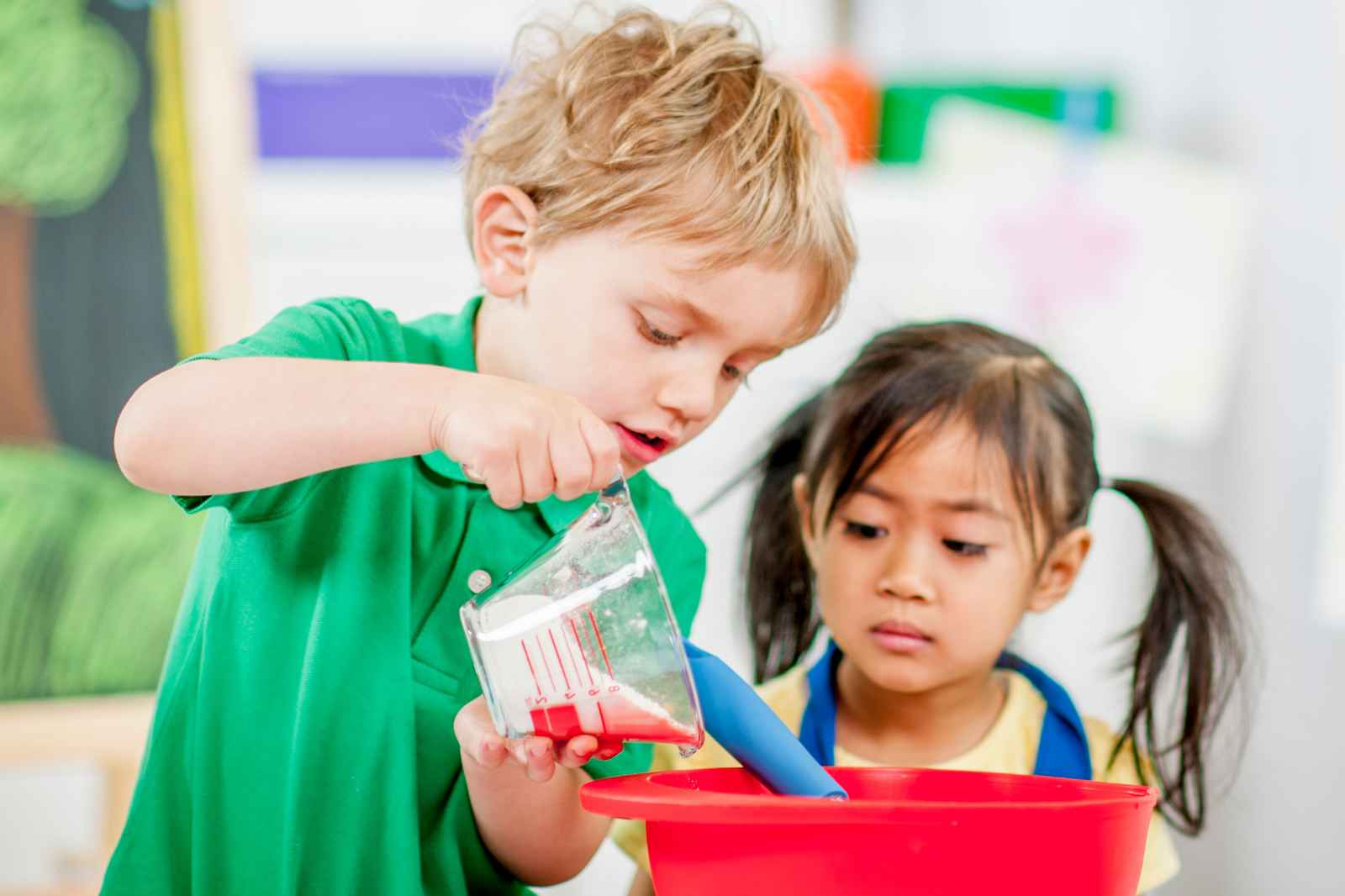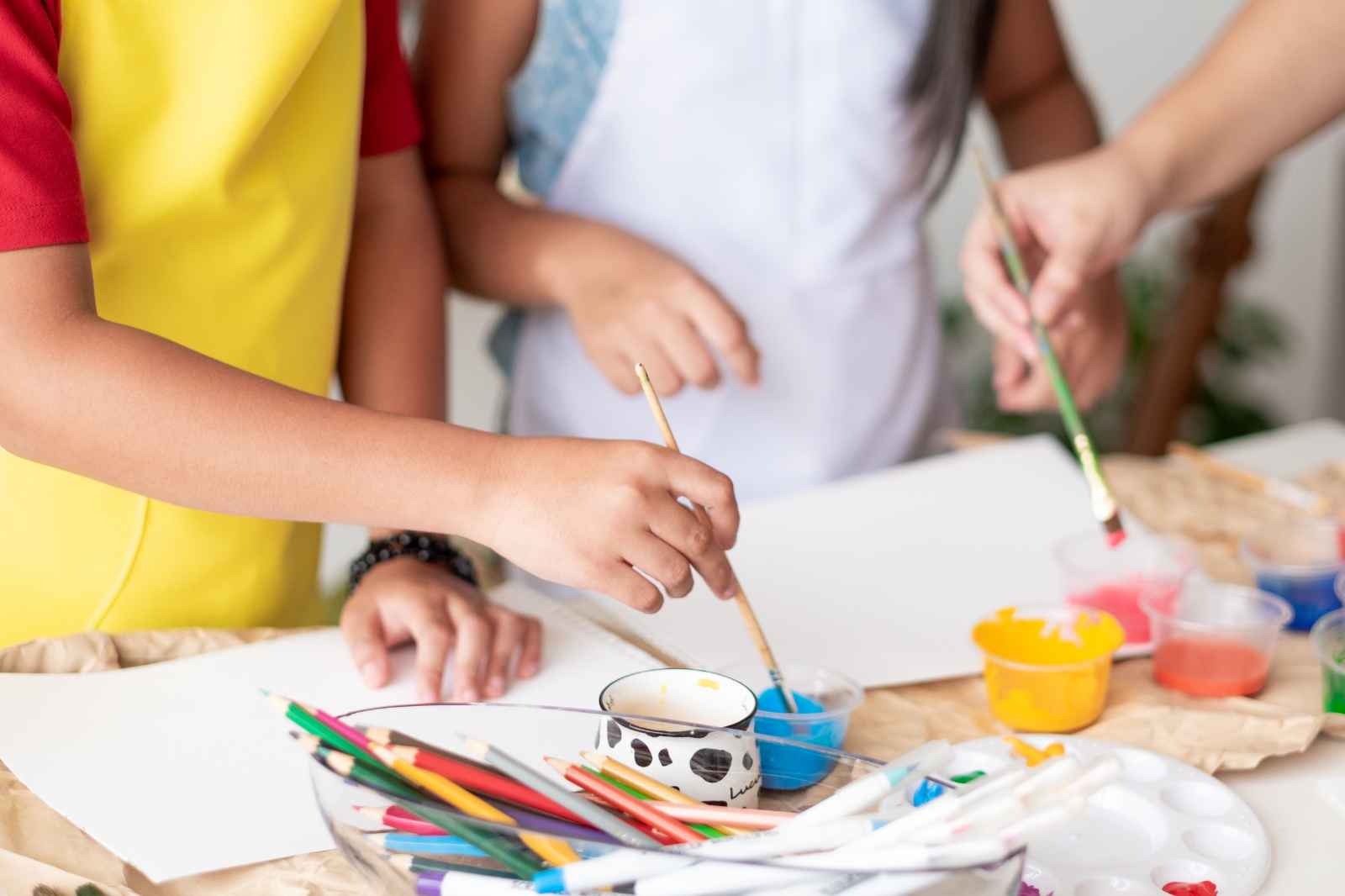
Applied Behavior Analysis (ABA) therapy has become a trusted intervention to cultivate social abilities in individuals with autism and developmental challenges. By breaking down complex social behaviors into measurable, teachable steps, ABA therapy helps children gain confidence in their interactions with others. Mestre Behavior, a dedicated ABA provider in South Florida, utilizes proven methods to improve communication, empathy, and collaboration among children. ABA therapy enables practitioners to analyze behavior and design individualized programs for each patient. This comprehensive article explains how ABA therapy cultivates social abilities, details the strategies employed during therapy sessions, and describes the targeted social skills, diverse settings, measurement techniques, and strategies for overcoming common challenges in social skill acquisition.
Key Takeaways
- ABA therapy cultivates social skills by deconstructing complex interactions into measurable components.
- Techniques such as Discrete Trial Training (DTT) and Natural Environment Teaching (NET) support natural social engagement.
- Therapy programs focus on communication, empathy, turn-taking, and understanding social cues.
- Effective social skill development is enhanced by individualized programs, data tracking, and collaborative environments.
- Overcoming challenges in social training requires adaptive approaches and culturally sensitive strategies.
Understanding How ABA Therapy Cultivates Social Abilities
ABA therapy is structured around the concept of breaking down social behaviors into manageable, observable components. The process begins with identifying the core challenges that an individual faces in social situations and then using evidence-based techniques to shape and improve these behaviors. This methodical approach makes it possible to work on everything from basic eye contact to nuanced conversation skills. By initially focusing on small, achievable steps, ABA therapy empowers individuals to build upon existing skills and gradually tackle more complex interactions.
Core Principles of ABA for Social Skill Enhancement
The foundation of ABA therapy rests on the principles of reinforcement and behavior modification. Therapists identify behaviors that require enhancement and immediately provide positive reinforcement when the desired behavior is exhibited. This reinforcement can be in the form of praise, tokens, or access to preferred activities. The clear and consistent use of reinforcement increases the likelihood that the targeted social behavior will be repeated. One of the key advantages of ABA therapy is its reliance on data-driven decisions—therapists continuously monitor and record the frequency, duration, and context of behaviors to adjust interventions accordingly. This objective measurement ensures that progress in social engagement is not just anecdotal but quantifiable.
Breaking Down Complex Social Interactions Into Teachable Steps
Social interactions involve a complex interplay of verbal, nonverbal, and contextual cues. ABA therapy simplifies these interactions by deconstructing them into discrete steps. For instance, a typical conversation might be divided into initiating contact, maintaining the conversation through these steps, and appropriately concluding the dialogue. Each step is practiced separately until mastery is achieved, after which the steps can be linked into a fluid social exchange. This step-by-step methodology is particularly useful for children who may feel overwhelmed by the multifaceted nature of social interaction. As the individual gradually learns to navigate each segment, a natural and competent exchange eventually develops.
The Significance of Individualized ABA Programs for Social Growth
Not all individuals present the same social challenges or progress at the same pace. Therefore, one of the most important aspects of ABA therapy is its individualized approach. Each therapy program is tailored according to the unique needs of the patient, considering strengths, weaknesses, and personal interests. This personalization influences the choice of reinforcers and the pacing of skill development, ensuring that the therapy remains engaging and effective. Individualized programs also allow therapists to work collaboratively with families to align treatment goals with real-world scenarios, which increases the likelihood of generalizing social skills outside the therapy session.
Observing and Measuring Social Behavior Progress in ABA
Observation and measurement are critical components of ABA therapy. Therapists use standardized data collection methods to track a patient’s progress over time. Tools such as time-sampling and frequency recording enable the clinician to assess improvements in areas like eye contact, verbal exchanges, and social initiations. Through these objective measurements, therapists can adjust their strategies to better meet the patient’s evolving needs. For example, if data reveals that a patient is reluctant to initiate conversation, the therapy plan may be modified to focus more intensively on turn-taking and initiating interactions. This ongoing evaluation ensures that the interventions remain effective and that the patient’s social trajectory continues upward.
Key ABA Techniques for Improving Social Skills With ABA

The success of ABA therapy in enhancing social skills lies in its repertoire of specialized techniques. Therapists employ a variety of methods to teach and reinforce appropriate social behaviors. These techniques are carefully selected based on each patient’s individual needs and progress levels. By combining structured sessions with naturalistic interventions, professionals create a balanced environment in which social learning can flourish. Each technique is designed to build on previous successes, ensuring that even the most hesitant children can develop confidence in their interactions.
Utilizing Discrete Trial Training (DTT) for Foundational Social Learning
Discrete Trial Training (DTT) is one of the most established methods in ABA therapy. In this technique, social skills are taught in structured, repetitive sessions where each trial consists of a clear instruction, a correct response, and immediate reinforcement. The repetitive nature of DTT ensures that the desired social skills become ingrained over time. For example, a child might practice making eye contact, waiting for a response, and then smiling. Each correct behavior is promptly reinforced with positive feedback, fostering an environment where foundational social behaviors are consistently celebrated and repeated.
Implementing Natural Environment Teaching (NET) for Real-World Social Practice
Natural Environment Teaching (NET) takes learning out of the structured setting of a therapist’s office and into the real world. By embedding learning opportunities into natural, everyday activities, NET helps children generalize skills across settings. Whether during play, mealtime, or casual conversation, therapists guide children to practice social interactions in familiar contexts. This approach not only boosts confidence but also helps the child understand that social skills are applicable and useful in a variety of real-life situations. The pragmatic nature of NET bridges the gap between formal instruction and spontaneous social behavior.
Employing Modeling and Role-Playing to Demonstrate Social Behaviors
Modeling and role-playing are interactive techniques that allow children to observe and imitate appropriate social behaviors. In a controlled setting, therapists or peers demonstrate the desired behavior, and the child is encouraged to replicate it. This hands-on method is particularly effective for teaching subtle social cues like tone of voice, facial expressions, and body language. By watching a skilled model and engaging in role-play, children gain a clearer understanding of how to behave appropriately during diverse social interactions. The experiential learning process builds confidence as the child practices social skills in a supportive environment.
Using Social Stories to Explain Social Situations and Expectations
Social stories are personalized narratives that describe specific social situations and outline the expected behaviors. Developed in collaboration with caregivers, these stories provide clear explanations of social contexts, expectations, and appropriate responses. For instance, a social story might detail the steps of greeting a peer or the proper way to ask for help. By reading these stories repeatedly, children internalize the scripts, which helps them navigate challenging social situations confidently. Social stories are a powerful tool in ABA therapy because they combine visual aids, clear language, and repetition to facilitate better understanding.
The Function of Positive Reinforcement in Encouraging Social Engagement
Positive reinforcement is central to ABA therapy. It uses rewards to increase the likelihood that a desired behavior will be repeated. In social skills training, every correct social behavior—from sharing toys to maintaining conversation—is immediately reinforced with praise, tokens, or other incentives. This approach not only motivates the child to engage in social interactions but also builds a positive association with the behavior. Over time, positive reinforcement helps shape enduring social skills that persist long after the structured therapy sessions have concluded.
Specific Social Skills Targeted in ABA Therapy Programs
ABA therapy programs focus on a range of social skills to help children interact effectively with others. These programs are designed not only to improve basic communication but also to foster more complex interactions such as initiating conversations and managing emotions. Therapy sessions are structured to address a spectrum of abilities—from simple nonverbal cues to high-level conversational skills. Through these guided interventions, children learn to modulate their behavior in various social settings, ultimately leading to enhanced social participation and reduced behavioral challenges. The targeted skills are critical for building meaningful relationships and fostering independence.
Advancing Communication Skills Verbal and Nonverbal
Effective communication is a combination of both verbal and nonverbal skills. ABA therapy helps children refine their vocabulary, sentence structure, and conversational abilities while also emphasizing the importance of body language, facial expressions, and tone. Therapists assess each child’s current communication levels to customize intervention strategies—whether it’s through structured language lessons or interactive play that requires expressive responses. As progress is made, children are encouraged to respond to social cues and provide feedback in conversations, thereby developing a more nuanced understanding of effective communication.
Teaching Turn-Taking and Sharing in Social Interactions
Turn-taking and sharing are essential for successful social interactions, especially among peers. ABA therapy employs structured games and role-plays to teach these skills in a fun and engaging way. For example, children might participate in group activities that require alternating turns or working collaboratively. This practice not only promotes fairness and patience but also instills an understanding of reciprocity in social contexts. Reinforcement is provided when a child successfully takes turns or shares appropriately, helping to reinforce the importance of these cooperative behaviors.
Improving Understanding and Use of Social Cues and Norms
Recognizing and interpreting social cues is critical for effective social functioning. ABA therapy involves exercises that help children learn the meaning behind facial expressions, tone variations, and body language. Therapists often use video modeling, picture cards, and interactive games to illustrate how different cues signal various emotions or intentions. By practicing these skills, children develop the ability to read and respond to social cues, which in turn helps them adjust their behavior in real-time situations. Understanding cultural norms and situational contexts also plays a significant role in this training, ensuring that the children are well-prepared for diverse social interactions.
Developing Skills for Initiating and Maintaining Conversations
Initiating conversations can be a significant challenge for many children. ABA therapy systematically builds these skills through structured prompts and gradual increase in the complexity of conversational tasks. Therapists work with children to practice greetings, asking questions, and maintaining dialogue over extended periods. Role-playing exercises allow children to experience various scenarios—from casual small talk to more structured exchanges—which enhance their ability to initiate and sustain a conversation. Detailed feedback and positive reinforcement support these efforts, leading to improved confidence in social settings.
Fostering Empathy and Perspective-Taking Abilities
Empathy and perspective-taking are fundamental to forming healthy relationships and understanding the feelings of others. ABA therapy uses tailored activities to help children recognize and interpret emotions in themselves and their peers. Through guided discussions, role-playing, and social stories, children learn to identify emotional expressions and develop an understanding of how their actions might affect others. This empathy-building process not only improves interpersonal relationships but also cultivates higher levels of social responsibility, enabling children to respond in caring and supportive ways during conflicts or stressful situations.
Enhancing Social Skills Through ABA Therapy in Varied Settings

ABA therapy is most effective when delivered across various environments. The transfer of learning from the therapy center to the home, school, and broader community is essential for long-term success. By utilizing multiple settings, therapists ensure that the social skills acquired during therapy sessions become natural, spontaneous parts of a child’s daily routine. This comprehensive approach requires close collaboration among therapists, educators, and family members.
Practicing Social Skills in One-on-One Therapy Sessions
Individualized therapy sessions offer a controlled environment where therapists can focus exclusively on a patient‘s unique needs. In one-on-one settings, therapists meticulously tailor each session to address specific deficits in social behavior. This personalized focus allows for immediate feedback, precise reinforcement, and the opportunity to repeat challenging tasks until mastery is achieved. One-on-one sessions often involve structured tasks such as turn-taking, role-playing greetings, and expressing emotions accurately. The individualized attention not only accelerates skill acquisition but also builds a trusting relationship between the patient and therapist, which is vital for sustained behavioral change.
Facilitating Peer Interactions and Group Social Skills Training
Group therapy sessions play a crucial role in enhancing social skills by providing opportunities for peer interaction. In these settings, children practice skills like sharing, cooperation, and conflict resolution with other peers. Group sessions often simulate real-life scenarios, making the practice of social skills dynamic and interactive. The presence of peers provides natural cues and opportunities for spontaneous social interactions, while therapists guide the process by providing feedback and reinforcement. The benefits of group training include improved self-confidence, better understanding of social dynamics, and the ability to adapt learned skills in a variety of group contexts.
Generalizing Social Abilities to Home and Community Environments
Generalization is a core goal of ABA therapy, meaning that the skills learned in a structured environment are successfully applied outside of it. Therapists and caregivers work collaboratively to ensure that social behaviors practiced during therapy sessions are transferred to home and community settings. This might include structured homework assignments, social scripts, and family training sessions. For instance, a child who learns proper conversational skills during one-on-one sessions is encouraged to practice those skills during family meals or social gatherings. This continuity helps solidify the skills as practical, everyday behaviors rather than isolated exercises.
Collaborating With Schools to Support Social Learning
Schools provide an essential setting for social interaction, and collaboration between ABA therapists and educators can enhance social learning. When teachers are informed about a child’s ABA program, they can reinforce key social behaviors throughout the school day. In addition, school-based interventions, such as social skills groups and peer mentoring, complement clinical ABA sessions. Educators can offer real-time feedback and observe how well a child adapts social skills in varied contexts, creating a holistic support system that bridges the gap between therapy and everyday social life.
The Role of Parent and Caregiver Training in Social Skill Development
Parent and caregiver involvement is paramount to the success of any ABA therapy program. Training sessions designed for parents provide vital techniques and strategies to reinforce learned behaviors at home. These sessions often focus on techniques for prompting, natural reinforcement, and consistency in behavior management. By equipping caregivers with the same tools used in therapy, the child receives a consistent and supportive environment, which is crucial for social skill generalization. Collaborative efforts between therapists and caregivers lead to a more empathetic, understanding, and responsive approach, ensuring that social improvements are maintained between therapy sessions.
Measuring Success and Outcomes in Social Skill Development
Accurate measurement of progress is vital to ensure the ongoing success of ABA therapy. By setting clear, achievable goals and using data-driven methods, therapists can track improvements and adjust strategies accordingly. The evaluation process involves regular observation, direct feedback, and standardized assessments that measure a child’s ability to navigate social interactions in various contexts. This comprehensive assessment not only validates the effectiveness of the therapy but also highlights areas that may need further enhancement. The ability to quantify behavioral change gives both therapists and families a measurable way to see progress and celebrate even small victories.
Setting Achievable Social Skill Goals in ABA Therapy
Successful ABA therapy for social skills begins with the establishment of clear, achievable goals tailored to the individual’s needs. These goals are developed collaboratively by therapists, caregivers, and educators, ensuring that they are realistic and measurable. For instance, a goal might be to initiate at least one conversation during a group activity or to maintain eye contact for a specified duration. These targets are then broken down into smaller, manageable steps that the child can work on progressively. Having a structured goal-setting process not only motivates the patient but also provides a basis for tracking progress over time.
Tracking Progress Through Data Collection and Analysis
Data collection is an integral component of ABA therapy, enabling therapists to document successes and identify areas needing improvement. Various methods such as frequency recording, interval recording, and time sampling are used to gather data on social behaviors. This information is then analyzed to determine whether the current strategies are effective or require modification. Real-time data allows for adjustments during therapy sessions, ensuring that the child’s social skill development remains on track. Ultimately, the systematic collection and analysis of data empower therapists to create customized interventions that evolve with the child’s progress.
Observing Improvements in Real-Life Social Interactions
Improvement in social skills extends beyond the therapy room and into everyday life. Therapists measure success by observing how children apply acquired skills in real-life settings such as at home, in school, or during community activities. Qualitative observations often include noting increased eye contact, smoother conversations, and enhanced willingness to engage in peer interactions. These observed improvements provide tangible evidence of the therapy’s effectiveness and reinforce the importance of continued practice in natural settings. As social interactions become less stressful and more rewarding, the overall quality of life for the child improves significantly.
Long-Term Benefits of Improved Social Skills for Individuals With Autism
The enhancement of social skills through ABA therapy offers profound long-term benefits for individuals with autism. Improved communication and social understanding can lead to better academic performance, increased independence, and more fulfilling interpersonal relationships. These skills are foundational for successful integration into the community and higher education or employment opportunities later in life. Furthermore, as social skills translate into enhanced emotional regulation and reduced anxiety, the overall mental health and quality of life for these individuals are significantly improved. The ripple effects of effective ABA therapy extend well into adulthood, laying the groundwork for a more confident and connected life.
Adjusting ABA Strategies to Ensure Continued Social Growth
ABA therapy is an ongoing process that evolves with the needs of the individual. As children progress, the strategies employed must be adjusted to tackle increasingly complex social situations. This adaptive approach ensures that once basic social skills are mastered, more advanced skills such as nuanced conversation and conflict resolution are introduced. Regular reviews, data analysis, and feedback from multiple environments guide these adjustments. By continuously refining the therapy plan, ABA providers ensure that the child’s social growth remains dynamic and uninterrupted. This sustained approach not only promotes lasting behavioral change but also helps children build resilience in the face of new social challenges.
Addressing Common Challenges in Social Skill Acquisition
Despite its proven benefits, teaching social skills through ABA therapy can present several challenges. These challenges often arise from the inherent complexity of social behavior, the diversity of individual responses, and the varying environments in which learning occurs. ABA practitioners must navigate issues such as inconsistent generalization of skills, co-occurring behavioral or emotional conditions, and social anxiety. By anticipating and addressing these challenges proactively, therapists are better equipped to sustain progress and provide effective interventions tailored to each child’s needs.
Overcoming Difficulties With Generalizing Learned Social Skills
Generalization refers to the ability to apply learned behaviors across different contexts and environments. One common challenge in ABA therapy is that children may perform well in structured settings but struggle to replicate these behaviors in less controlled, real-life situations. To overcome this, therapists incorporate strategies like natural environment teaching, role-playing, and caregiver training. These techniques ensure that the child practices the same social skills in various settings, whether at home, school, or in the community. Consistent reinforcement and positive feedback help solidify these skills so that they become a natural part of the child’s behavioral repertoire.
Managing Co-Occurring Conditions That Impact Social Learning
Children with autism may also face additional challenges such as attention deficits, anxiety disorders, or sensory processing issues that hinder social skill development. ABA therapy must therefore be sensitive to these co-occurring conditions. Customized interventions and collaboration with medical professionals ensure that these conditions are managed while social skills are being taught. For example, a child with sensory sensitivities might benefit from a quieter learning environment or specific sensory integration techniques alongside ABA therapy. Addressing these co-occurring factors is essential in creating an effective and holistic social skills training program.
Supporting Individuals With Social Anxiety in ABA Therapy
Social anxiety is a significant barrier for many individuals undergoing ABA therapy. Fear of judgment or failure can impede a child’s willingness to engage in new social situations. Therapists work on gradually reducing anxiety through exposure-based interventions, structured support, and positive reinforcement. Techniques such as role-playing, social stories, and small-group interactions are particularly effective in easing anxiety and building confidence. With careful monitoring and adaptive strategies, children learn to manage their anxiety and embrace social interactions with a sense of accomplishment and safety.
Promoting Motivation for Social Engagement
Motivation is a key driving force behind successful social skills training. When children are motivated, they are more likely to engage in social interactions and apply their learned skills outside of therapy sessions. ABA therapy leverages positive reinforcement, interest-based activities, and personalized rewards to boost motivation. By linking social interactions to enjoyable experiences, therapy becomes more engaging and less of a chore. As children experience the positive outcomes of social engagement, whether through improved friendship, praise, or tangible rewards, their willingness to participate and generalize these skills increases markedly.
Ensuring Culturally Sensitive Approaches to Social Skills Training
Cultural sensitivity is an essential aspect of social skills training. Children come from diverse backgrounds, and the social norms they are expected to learn can vary significantly. ABA therapy must be adapted to respect and incorporate cultural differences in behavior, communication styles, and social expectations. Therapists work closely with families to understand cultural contexts and tailor interventions accordingly. This approach not only makes the therapy more effective but also fosters a sense of inclusion and respect. When cultural factors are acknowledged and integrated, children are better positioned to apply social skills in a way that feels authentic and appropriate to their personal identity.
Frequently Asked Questions
Q: How does ABA therapy help in improving social skills? A: ABA therapy breaks down social behaviors into small teachable steps and uses positive reinforcement to help individuals adopt effective communication, turn-taking, and empathy skills, eventually generalizing these skills to broader settings.
Q: What techniques are used in ABA therapy for social skills training? A: Techniques such as Discrete Trial Training (DTT), Natural Environment Teaching (NET), modeling, role-playing, and social stories are commonly used to build foundational and advanced social skills in a structured yet natural manner.
Q: Can parents be involved in ABA therapy for social skills? A: Yes, parent and caregiver training is integral to ABA therapy, ensuring that the learned social skills are reinforced consistently at home and in real-life social environments, thereby promoting long-term success.
Q: How is progress in social skills measured in ABA therapy? A: Progress is measured through systematic data collection methods, including frequency tracking and direct observation in various settings, to ensure that the reinforced social behaviors are generalized across different environments.
Q: What challenges might be encountered in social skill training with ABA? A: Common issues include difficulties in generalizing learned skills across contexts, managing co-occurring conditions like anxiety, and ensuring culturally sensitive approaches. Therapists work closely with families and educators to adapt strategies and overcome these challenges effectively.
Final Thoughts
Mestre Behavior’s ABA therapy offers a comprehensive approach to enhancing social skills among children by meticulously breaking down complex interactions into manageable steps. Through individualized programs, proven techniques, and data-driven assessments, ABA therapy enables children to strengthen communication, empathy, and confidence in social settings. The involvement of parents and educators ensures that these skills are generalized and maintained in various environments. As ABA therapy continues to evolve, its focus on tailored, culturally sensitive, and measurable interventions stands as a beacon of hope for children seeking to navigate the complexities of social interaction.
























